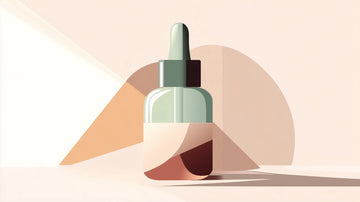Your liver is essential for detoxifying your body and keeping you healthy. Here are the key steps and foods to prioritize to support its proper function:
Essential points to remember:
- Liver Function: Detoxifies toxins in 3 phases (transformation, conjugation, elimination).
-
Beneficial Foods:
- Cruciferous Vegetables (broccoli, kale): Lower the risk of fatty liver disease.
- Citrus (lemon, grapefruit): They help eliminate toxins.
- Herbs and spices (garlic, turmeric, ginger): They reduce inflammation and support detoxification.
-
Lifestyle Habits:
- Drink 2 litres of water per day.
- Limit your alcohol intake (max. 1 drink per day for women, 2 for men).
- Do 150 minutes of exercise per week.
- Sleep 7 to 9 hours per night.
Quick plan for a healthy liver:
| Moment | Action |
|---|---|
| Morning | Drink lukewarm water + a citrus fruit (e.g., lemon) |
| Lunch | Add cruciferous vegetables to your meal |
| Dinner | Opt for fatty fish or legumes |
Adopt these simple habits to protect your liver and boost your overall well-being.
13 BEST Foods to Cleanse Your Liver
Top Foods for Liver Health
Foods that support liver health play a key role in optimizing its functions. Here’s a selection of foods backed by scientific research.
Broccoli, Kale, and Other Cruciferous Vegetables
Cruciferous vegetables are especially good for the liver because they’re rich in indoles. These bioactive compounds help lower the risk of nonalcoholic fatty liver disease (NAFLD).
Based on our research, we believe that healthy foods rich in indole production are key to preventing NAFLD. They also help improve the health of those who have it.
- Chaodong Wu, M.D., Texas A&M AgriLife Research Faculty Fellow
To maximize their effects, include vegetables such as:
- Broccoli
- Kale
- Cauliflower
- Brussels sprouts
These vegetables, when combined with other antioxidant-rich foods, provide enhanced liver protection.
Citrus and Antioxidants
Citrus fruits, rich in vitamin C, play a crucial role in liver detox. They turn toxins into water-soluble substances, making it easier for your body to flush them out.
| Citrus | Benefits |
|---|---|
| Grapefruit | Rich in antioxidants, reduces liver inflammation |
| Orange | Boost detoxifying enzyme production |
| Lemon | Helps eliminate toxins |
Note: If you take medication, consult a healthcare professional before consuming grapefruit, as it may interact with some treatments.
In addition to citrus, some herbs and spices offer specific benefits to support liver health.
Liver-Friendly Herbs and Spices
Some herbs and spices can boost liver function:
- L'ail: A 2020 study on NAFLD patients found that taking 800 mg of garlic powder daily for 15 weeks reduced ALT and AST liver enzyme levels and lowered LDL cholesterol. More than half of the participants noticed a significant drop in liver fat buildup.
- Turmeric: Thanks to curcumin, it boosts bile production, reduces inflammation, and fights oxidative stress.
- Ginger: Its active compounds, gingerols and shogaols, protect the liver from toxic damage and help reduce inflammation, especially after occasional alcohol use.
To maintain and improve your liver's health, choose a diet full of fresh, minimally processed foods. These simple choices can greatly support the liver’s detox functions.
Meal planning for a healthy liver
A well-structured diet plan can boost your liver's detoxifying capabilities. Plan your meals to support this vital organ.
Quick recipes for a healthy liver
Here are some simple and effective recipe ideas to take care of your liver:
Morning detox smoothie
- 1 banana
- 1 handful of kale
- ½ avocado
- 200 ml of almond milk
- 1 teaspoon of chia seeds
Blend all the ingredients and enjoy immediately. Tip: finely chop the kale and let it sit for 30 minutes to maximize its nutrients.
Revitalizing Arugula Pesto
- 200 g of arugula
- 50 g of walnuts
- 2 garlic cloves
- Extra virgin olive oil
- Fresh lemon juice
Mix the ingredients until you achieve a smooth texture. This pesto pairs perfectly with whole wheat pasta, grilled vegetables, or sandwiches.
Incorporate these recipes into your weekly routine for lasting results.
Tips for Effective Weekly Planning
Here's an example of a balanced menu for the week:
| Meal | Day 1 | Day 2 | Day 3 |
|---|---|---|---|
| Breakfast | 2 scrambled eggs with vegetables + melon | Red Fruit Detox Smoothie | Green Juice + Herb Omelette |
| Lunch | Chickpea and Vegetable Salad | Grilled chicken + steamed broccoli | Vegetable and Bean Soup |
| Dinner | Sautéed red cabbage + lean protein | Vegetable curry with turmeric | Grilled fish + cruciferous vegetables |
Practical Tips for a Simplified Preparation:
- Make a big batch of vegetables on the weekend to save time.
- Freeze individual portions for quick use.
- Always keep fresh lemons on hand for your dressings.
- Opt for gentle cooking methods like steaming or using a pan with minimal oil.
To enhance the benefits:
- Massage the kale with a drizzle of lemon or oil to make it tender and flavorful.
- Include green vegetables in your soups, smoothies, or even on your homemade pizzas.
Consistency and a varied diet form the foundation of liver protection, all while keeping your nutrition balanced.
Daily Habits for a Healthy Liver
Hydration and Alcohol Consumption
Water plays a key role in helping the liver eliminate toxins. Here are some tips to stay well hydrated:
- Drink at least 8 glasses of water per day (about 2 liters).
- Start your morning with a big glass of warm water.
- Spread out your water consumption throughout the day.
When it comes to alcohol, moderation is key to keeping your liver healthy. Here are the general recommendations:
| Gender | Daily limit | Weekly limit |
|---|---|---|
| Women | 1 glass maximum | 7 glasses |
| Men | 2 glasses maximum | 14 glasses |
"For people with alcoholic liver disease and cirrhosis, it's essential to avoid alcohol. There is no safe amount for them." - Dr. Justin R. Boike, Northwestern Medicine Hepatologist
Adopting these habits not only supports your liver but also prepares your body to better handle everyday challenges, whether it's physical exertion or stress.
Physical Activity and Stress Management
Exercising regularly boosts blood circulation, which supports liver function. Aim for about 150 minutes of moderate physical activity per week. Add 10 to 15 minutes per day of meditation, deep breathing, or gentle yoga to your routine.
Research shows that eight weeks of mindfulness meditation can reduce cortisol levels by about 20%.
"When you see reducing stress as a detox strategy, not just a wellness luxury, everything changes. Your meditation practice becomes as essential as your green juice." - Dr Aaron Hartman
Finally, quality sleep is crucial. Try to get 7 to 9 hours per night. While you sleep, your brain's glymphatic system becomes up to 60% more active, helping remove toxins. These practices, built into your routine, can greatly boost your liver’s health and function.
Next Steps to Take Care of Your Liver
Take care of your liver today by adopting simple, lasting changes. Here are some practical tips based on the dietary recommendations and lifestyle habits mentioned earlier.
Nutrition
Did you know that even a modest 5% weight loss can reduce liver fat buildup? Here's how:
- Bet on balanced meals: Swap half your plate for non-starchy vegetables.
- Opt for whole grains: they provide essential fiber and nutrients.
- Add healthy fats: think olive oil, avocado, or nuts.
The way to a healthier liver starts with your diet. Cutting back on carbs and overall calories can improve the fat stored in your liver.
- Dr Robert Fontana, Medical Director of the Liver Transplant Program at Michigan Medicine
Immediate Action Plan
Here's an example of concrete actions to incorporate into your daily routine:
| Time of Day | Concrete Action |
|---|---|
| Morning | A cup of coffee and a citrus fruit |
| Noon | A serving of cruciferous vegetables (like broccoli or cauliflower) |
| Snack | 30 g of nuts or seeds |
| Evening | Fatty fish or legumes |
These small adjustments can have a positive impact on your liver health.
Lifestyle Changes
Adopting an active and balanced lifestyle is just as important as your diet. Here are some habits to incorporate:
- Exercise regularly: 45 minutes, three times a week are enough to boost your metabolism and reduce liver fat.
- Get enough sleep: Try to sleep 7 to 9 hours each night to help your body recharge.
Our liver detoxifies and filters out harmful substances from our body, and it does this very well. We don't need supplements to support this process. In fact, some of these supplements can harm the liver, cause liver failure, and even lead to death in severe cases.
- Dr Mahsa Mansouri, M.D.
Research shows that losing 7% of your body weight can reverse fatty liver. And if you lose 10%, it may reduce inflammation and help your liver heal. By adopting these habits, you set yourself up for lasting results.
Frequently Asked Questions
Which foods should you prioritize to support liver health and detoxification?
Support liver health and detoxification
To care for your liver and help it eliminate toxins, choose foods rich in nutrients and antioxidants. Here are some of your liver's best allies:
- Garlic: It activates liver enzymes that help eliminate toxins.
- The grapefruit: Thanks to its vitamin C and antioxidants, it offers valuable protection for the liver.
- Turmeric: Known for its anti-inflammatory properties, it effectively supports proper liver function.
Additionally, consider cruciferous vegetables like broccoli and cabbage, which also support detoxification. Fruits such as berries and citrus add extra antioxidants. Lastly, healthy fats from foods like olive oil and avocados play a key role in keeping your liver healthy. Incorporate these foods into your meals for a simple and effective approach to your daily wellbeing.
How do exercise and sleep influence liver health?
The Importance of Exercise and Sleep for Liver Health
Engaging in regular physical activity plays a key role in maintaining a healthy liver. By enhancing blood flow, exercise helps reduce inflammation and clear away accumulated fats. These combined benefits limit liver damage while boosting its ability to perform vital functions.
On the other hand, quality sleep is just as essential. Lack of rest can disrupt your metabolism and trigger issues like non-alcoholic fatty liver disease (NAFLD). Even worse, it may aggravate existing liver conditions.
Adopting a regular exercise routine and ensuring a good night's sleep are simple yet essential habits to keep your liver healthy every day.
Why should you consult a healthcare professional before having grapefruit with certain medications?
Interactions between grapefruit and medications
Grapefruit can interfere with how your body absorbs certain medications. This interference might boost side effects or reduce effectiveness. For instance, it can raise the level of some drugs in your blood, like statins, increasing the risk of unwanted effects.
Important fact: these interactions can occur even if you consumed grapefruit several days before your treatment. That’s why it’s essential to consult a health professional before adding grapefruit or its juice to your diet, especially if you’re on medication.






